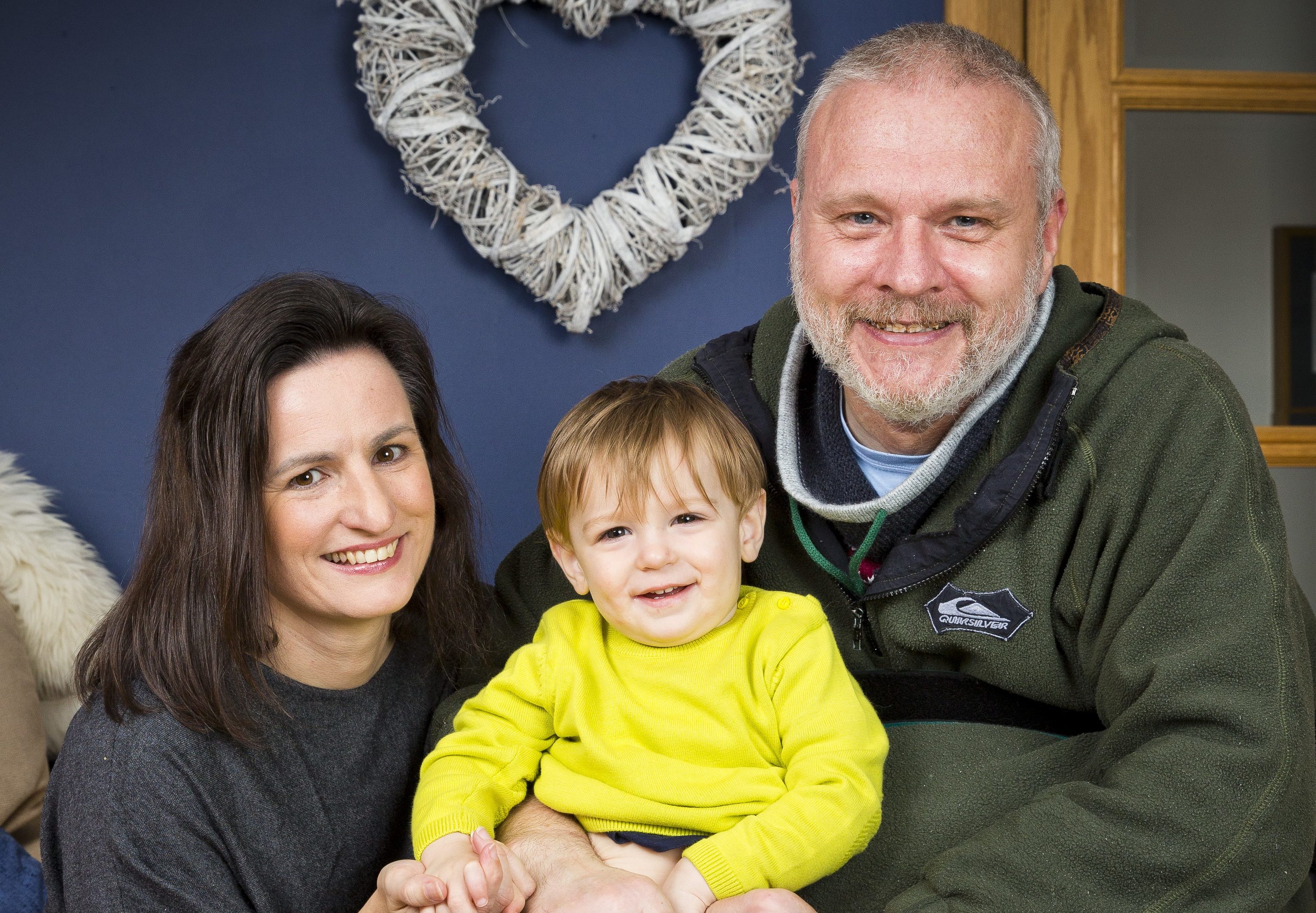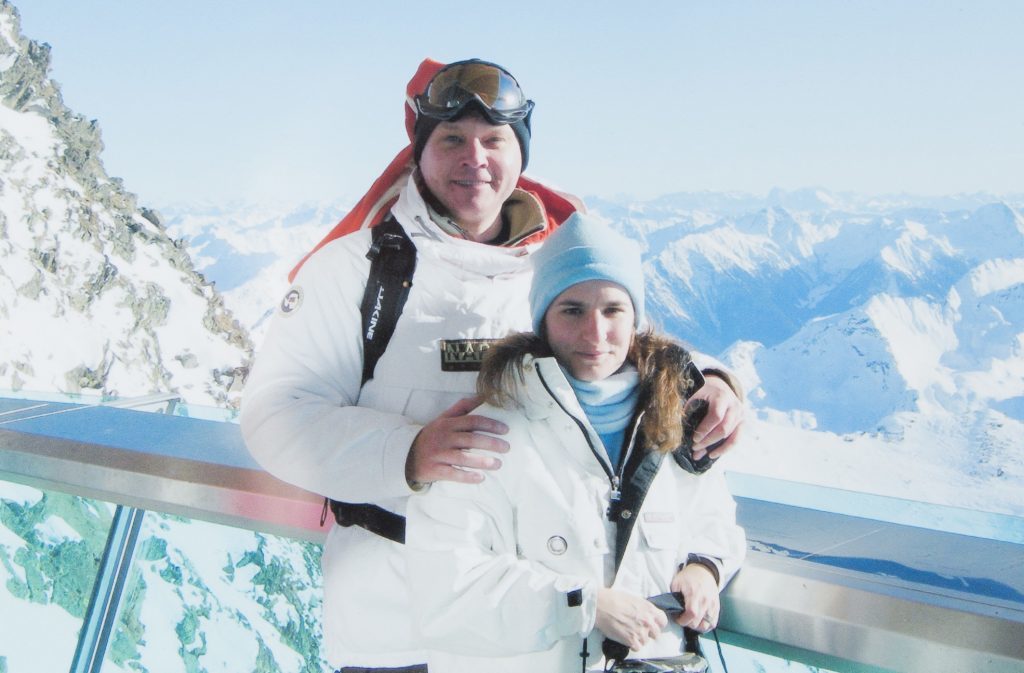
AFTER a decade of trying for a baby and three failed IVF attempts, Rebekah Bilbrough could not have been happier when her little son Erik arrived safely.
The delivery had been traumatic and she almost died giving birth, losing perilous amounts of blood as her organs shut down and doctors feared death or brain damage.
Her pregnancy had been a ray of light after some dark years following a terrible skiing accident, which had left Rebekah’s husband Glenn paralysed.
And, taking Erik home from hospital, she was looking forward to being a mum to her baby and building her family. Then, two weeks later, she felt a lump in her breast. It was cancer, one of the most aggressive types.
After successfully undergoing surgery and treatment, Rebekah, 39, hugged Erik at the family’s home in Cumnock, Ayrshire, and insisted she would leave the recent dark years behind her.
She added: “I felt like I hadn’t been happy for a long time but I have to move forward.
“My happiness is my responsibility. I’m finally getting there.”
The shocking series of events were so extreme that she was diagnosed with post traumatic stress disorder.
She said: “I was seeing a counsellor for the PTSD.
“She explained that most people go through two traumatic events in their lives – some might have none, others one – but she said what we had gone through was way off the scale.”
Rebekah credits much of her optimism and positive attitude to a support group at The Beatson cancer centre in Glasgow.
The six-week programme called Fear of Recurrence offers a forum for survivors, supported by expert staff, to help them come to terms with life after cancer.
She said: “Now I feel like I’m in a better place and every month the cancer seems further away.
“Erik is absolutely thriving and he is such a happy child, and that makes us so pleased.”
Life seemed much simpler in 1999, when she and Glenn, now 53, both ski enthusiasts, met on the slopes. They married five years later.
But the snow was also to be the setting for a horrible accident.
“It was Christmas Eve 2007 and we were skiing in Austria,” said Rebekah.
“We were on the last ski of the day and I was walking ahead with a friend when Glenn fell.
“Because he was on the flat at the time, his feet kicked him on the back of the head as he fell over and damaged his spinal cord.
“In just two seconds, life had changed for ever.
“For me, the hardest part was knowing what the doctors were going to tell him. He had always said he would rather be dead than paralysed.
“He is paralysed from the chest down, with just a little bit of movement in his biceps and triceps.
“To be honest he still hasn’t come to terms with it. He probably never will.” They flew back to the UK on New Year’s Day and Glenn spent the next nine months in hospital.
He now has a 24-hour care team and has been able to return to full-time work with the National Air Traffic Services.
The couple had been on the IVF waiting list before Glenn’s accident, but to add to their distress the first three attempts failed.
Finally, in August 2015, Rebekah found out she was pregnant.
“It was great news but I was terrified that something might go wrong,” she said.
“Apart from low iron levels, the pregnancy went fine.
“But just before my due date I felt a change in Erik’s movement and the team at Crosshouse Hospital said I needed to be induced. The following day I was told I required an emergency C-section. I called home to get Glenn in, but the doctors said they couldn’t wait.
“Erik arrived fine but a clot went into my lungs and I stopped responding.
“I had an amniotic fluid embolism, which is rare and usually fatal. I was haemorrhaging from everywhere.
“The surgeons worked on me for six hours, but my organs were shutting down and I was on dialysis.
“They decided to do a hysterectomy and ovary removal. They weren’t sure if it would work but it was my only chance.
“It was only when I woke up two days later that they knew I didn’t have brain damage.”
So it was a miracle when she was deemed fit enough to leave hospital less than three weeks later. But there was more trauma just around the corner.
A fortnight after returning to the family home, Rebekah felt a lump as she rolled over in bed. It was breast cancer.
Rebekah said: “I knew straight away it was breast cancer because my mum, aunt and great aunt have all had it.
“My first thought was: ‘Who will look after Erik and Glenn?’”
Although the genetic test came back negative, Rebekah’s intuition was correct and she was diagnosed with triple negative breast cancer.
“Glenn and I had to plan who would take Erik if something happened to us,” she said.
“We always thought Glenn would go first, because at 53 he’s older and is the injured one, but we didn’t factor in that I might get ill. There were so many big things going on.
“Glenn’s mum passed away through cancer at that time and my mum was also diagnosed with cancer before Erik was born.
“You’re told not to Google your illness, but it becomes an obsession. You want to know what you are fighting – and the figures for triple negative breast cancer are especially terrifying.
“When my treatment ended I had mixed feelings, because my friend – who also had triple negative – wasn’t responding so well.
“I felt pleased for myself but guilty she wasn’t doing well. Her wedding was in June and she passed away in July.
“I thought about my friend and about my aunt’s cancer returning, then I was reading the cancer forums and seeing another person had passed away there.
“Glenn developed very bad sores that we think have been brought on by stress and he was off work for six months.
“But because I’ve also been off, money became tight and he had to go back. He’s still dealing with the issue.
“We’ve really found out who our friends are during the last little while.
“They have really come through for us and would drop anything if we needed them.
“Another positive is that I’ve been in touch with two long-lost sisters.
“I haven’t seen one of them for 32 years and the other I’ve not met in 20 years, but we’re meeting up next month.
“I’m one of five and there was a big age gap between us.
“Due to the family dynamics we all went off and did our own things, and lost touch.
“We’re really looking forward to seeing each other again.”
After completing her treatment, Rebekah was invited to join the Fear Of Recurrence programme, which is co-funded by Beatson Cancer Charity and Breast Cancer 2000 and led by Dr Natalie Rooney and Fiona Sinclair, a therapeutic radiographer.
“We were in small groups and there were tears, laughter, fear – basically every emotion – in a very safe environment,” said Rebekah.
“Fiona and Natalie were great and they gave us techniques to calm down the negative feelings. I still use those techniques today.
“I think it’s very positive that we’re now thinking about aftercare. As good as the physical treatment was, there wasn’t help available afterwards.
“I think people believe that once you’ve been through it, you can just go back to normal.
“Although I was very lucky to have great support from my friends, people need to be more aware that you still have all these emotions.
“But there are still reminders around and that’s why I’m glad I did the programme.”
The pilot is conducted through weekly two-hour sessions, with 71 women having already been referred in the first six months.
Dr Rooney, a clinical psychologist, said: “The programme we’ve developed includes both practical and emotional coping techniques for managing those ‘what if’ worries.
“Thanks to funding we’ve received from Breast Cancer 2000, we’re already seeing positive results and hope we can support many more over the coming months.”
Steven Don, chair at Breast Cancer 2000, said: “We are delighted to be working closely with Beatson Cancer Charity and funding pilot projects which will support many people going through breast cancer treatment.”

Enjoy the convenience of having The Sunday Post delivered as a digital ePaper straight to your smartphone, tablet or computer.
Subscribe for only £5.49 a month and enjoy all the benefits of the printed paper as a digital replica.
Subscribe